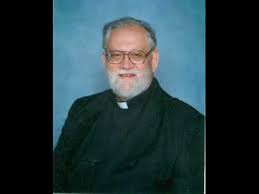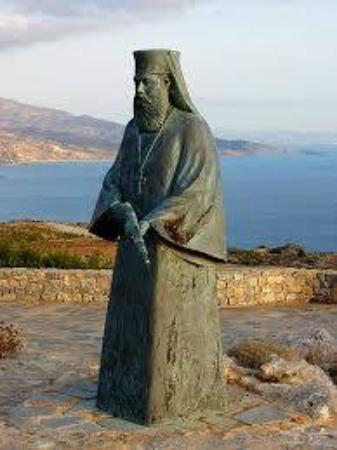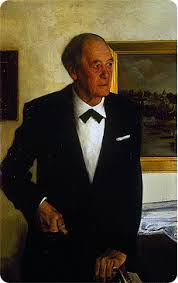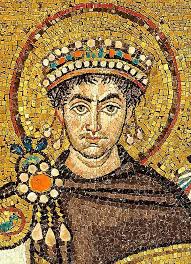Christ is risen! Truly he is risen!
Most of us living in the West, of whatever Faith, have grown up using many Western categories and assumptions. OK, folks, give it up! Prepare to change your paradigm! Eastern Orthodoxy often comes at things differently. I learned this early, when I as an Anglican asked certain questions of Father Tom Hopko (+ memory eternal), and he answered “Those questions cannot be answered from an Orthodox point of view.” So likewise with what will now follow – after a brief…
Introduction
Last week we looked at the early Church’s view of War and Peace, then at the Western Just War Theory – its value and its difficulties. And as I said, I have personally found the theory valuable in trying to analyzing our many wars. Many. I just tried to count up. The United States has been at war for, I think, 34 of my 80 years, and I probably missed some. That’s a lot.
And in between those, we’ve always been militarizing and preparing for more wars. I remember in the ’50s being trained to hide under our desks in case of nuclear attack which never came, thank God, but it could have. Except for a couple of years after World War II, I have never known a time of genuine peace.
This is very different from the experience of previous generations, when there were wars (usually small ones, occasionally horrific ones like the two world wars), but in between the nation was at peace. I’m not being political here or analyzing cause and effect, just describing. And wondering: does it have to be like this?
So “now for something completely different”.
The Eastern Orthodox Approach to War
Father Stanley Harakas (blessedly still alive, even older  than me!) was dean and professor of theology at Holy Cross School of Theology in Brookline, Massachusetts. He wrote that in his study of this subject, he began with the assumption that the Orthodox Church had a “just war theory” of our own – I suppose because everybody else seemed to assume it.
than me!) was dean and professor of theology at Holy Cross School of Theology in Brookline, Massachusetts. He wrote that in his study of this subject, he began with the assumption that the Orthodox Church had a “just war theory” of our own – I suppose because everybody else seemed to assume it.
But over the years he discovered that in the East the Church had taken a very different tack: “In light of the patristic evidence, my conclusion was and still is: The East did not seek to answer questions concerning the correct conditions for entering war and the correct conduct of war on the basis of the possibility of a ‘just war’, precisely because it did not hold to such a view. Its view of war, unlike that of the West, was that it is a necessary evil. The peace ideal continued to remain normative, and no theoretical efforts were made to make conduct of war into a positive norm. In short, no case can be made for the existence of an Orthodox just-war theory.”
- For his short summary of how he came to this conclusion, see https://incommunion.org/2005/08/02/no-just-war-in-the-fathers/
You can find a couple of Orthodox commentators who disagree with this. I heard one of them on a call-in program on Wisconsin Public Radio soon before the 2003 Iraq War, arguing that in the Orthodox view this would be a “just war”. I called in to say I didn’t think so, and that Orthodox metropolitans and bishops all over the world were begging us not to do this – except, oddly enough, those in the United States.
Apparently there are no facts to support an Eastern Orthodox theory of the just war. Senator Daniel Patrick Moynihan said there can be opinions about facts (or lack thereof), but there can be only one set of facts. Things are either true or untrue. I wish those who lately believe “alternate facts” would figure this out, but that’s another story. Or maybe it isn’t, if we might someday again be fed “alternate facts” about war.
Why no Orthodox just war theory?
Perhaps it was because during our formative Patristic period in the East, war rarely affected most people. War was almost always on the fringes of the Empire, and hired mercenaries took care of it. Also in the East, Orthodox emperors dealt with such matters. We didn’t have to face the same issues as in the West, where enemies were attacking the Christian imperial world which was collapsing. Things changed later in the East, of course, but by then Orthodox principles were established.
Or perhaps it was because the Eastern Fathers started with and stuck with the teachings of Christ and the Apostles. Saint Augustine of Hippo, who apparently originated the Just War Theory, was a good and holy man, but in the Orthodox view he also imposed a number of other unfortunate interpretations on the Tradition of the Church.
What the Church taught about War
The Orthodox Fathers held that war is always an evil, that there is no such thing as a just war, a holy war. Though it was usually held that wars could sometimes be the lesser of evils, the Church never taught that war could be good or glorious. Killing in war required repentance. Different Fathers took somewhat different approaches to the subject. Here is an inadequate sample.
In the second century, Hippolytus of Rome (OK, he was Western!), writing before the empire became Christian, was strict: “A Christian must not become a soldier, unless he is compelled by a chief bearing the sword. He is not to burden himself with the sin of blood. But if he has shed blood, he is not to partake of the Mysteries, unless he is purified by a punishment, tears, and wailing. He is not to come forward deceitfully but in the fear of God.” # 14 of his Canonical Epistles
 Saint Basil the Great, writing after the establishment of the Orthodox empire, was less strict: “Our fathers did not consider killings committed in the course of wars to be classifiable as murders at all, on the score, it seems to me, of allowing a pardon to men fighting in defense of sobriety and piety. Perhaps, though, it might be advisable to refuse them communion for three years, on the ground that their hands are not clean.” #13 of his 92 Canonical Epistles
Saint Basil the Great, writing after the establishment of the Orthodox empire, was less strict: “Our fathers did not consider killings committed in the course of wars to be classifiable as murders at all, on the score, it seems to me, of allowing a pardon to men fighting in defense of sobriety and piety. Perhaps, though, it might be advisable to refuse them communion for three years, on the ground that their hands are not clean.” #13 of his 92 Canonical Epistles
Saint Athanasius the Great is sometimes quoted in favor of war, since he wrote in one place that “we” glorify those who have fought in war, but in context he seems to be referring to society as “we”, not saying that the Church does so.
“As late as the tenth century, when the Empire was hard pressed by enemies, the Emperor Nicephoros II Phocas suggested that men who died in battle against the Muslims should be considered as martyrs. The Church refused.” (J.M. Hussey: The Orthodox Church in the Byzantine Empire, pp. 112-113)
While Orthodox laymen could serve in the military, to this day the Church continues its original ideal of nonviolence in the clergy. By canon law clergy have always been forbidden to serve in the military. In fact, in the Byzantine Empire clergy were not even allowed to enter military camps. Though today Orthodox clergy can, at least, serve as military chaplains.
Well, I guess that doesn’t forbid monks from carrying guns! Below is the abbot of Preveli Monastery on Crete during World War II (note carefully) which hid refugees from the Nazis, then by night led them far below (it’s a scary descent) and shipped them off to safety in Egypt. 
I understand that Orthodox canon law also says that anyone who has killed, even unintentionally, may not be ordained. (I can’t locate the law. Can someone find it for us?) As with many of our canon laws, some are considered to be still binding while others are not, and nobody tells us which are which! But I know I have sat with an Orthodox bishop as he interviewed a man seeking ordination. The first question the bishop asked was “Have you ever killed anyone?” Orthodox clergy are to be signs of God’s peace.
Sir Steven Runcimann’s Comparison of East and West.
Let me quote at length here, since the late  Dr. Runcimann sums it up far better than I could. He was a 20th century British historian who was not Orthodox, though he had an affection for Orthodoxy and wrote much about Byzantine history. This is from his A History of the Crusades: Volume I, Book II, Chapter I. An excellent book, as are all Runciman’s works. You ought to read it. Available at Amazon Books.
Dr. Runcimann sums it up far better than I could. He was a 20th century British historian who was not Orthodox, though he had an affection for Orthodoxy and wrote much about Byzantine history. This is from his A History of the Crusades: Volume I, Book II, Chapter I. An excellent book, as are all Runciman’s works. You ought to read it. Available at Amazon Books.
“The Christian citizen has a fundamental problem to face: is he entitled to fight for his country? His religion is a religion of peace; and war means slaughter and destruction. The earlier Christian Fathers had no doubts. To them a war was wholesale murder. But after the triumph of the Cross, after the Empire had become Christendom, ought not its citizens to be ready to take up arms for its welfare? The Eastern Church thought not.
“Its great canonist, Saint Basil, while he realized that the soldier must obey orders, yet maintained that anyone guilty of killing in war should refrain for three years from taking Communion as a sign of repentance. This counsel was too strict. The Byzantine soldier was not in fact treated as a murderer. But his profession brought him no glamour. Death in battle was not considered glorious, nor was death in battle against the infidel considered martyrdom; the martyr died armed only with his faith. To fight against the infidel was deplorable, though it might at times be unavoidable; to fight against fellow Christians was doubly bad.
 “Indeed, Byzantine history was remarkably free of wars of aggression. Justinian’s campaigns had been undertaken to liberate Romans from heretic barbarian governors, Basil II’s against the Bulgars, to recover imperial provinces and to remove a danger that menaced Constantinople. Peaceful methods were always preferable, even if they involved tortuous diplomacy or the payment of money.
“Indeed, Byzantine history was remarkably free of wars of aggression. Justinian’s campaigns had been undertaken to liberate Romans from heretic barbarian governors, Basil II’s against the Bulgars, to recover imperial provinces and to remove a danger that menaced Constantinople. Peaceful methods were always preferable, even if they involved tortuous diplomacy or the payment of money.
“To Western historians, accustomed to admire martial valour, the actions of many Byzantine statesmen appear cowardly or sly; but the motive was usually a genuine desire to avoid bloodshed. The princess Anna Comnena, one of the most typical of Byzantines, makes it clear in her history that, deep as was her interest in military questions and much as she appreciated her father’s success in battle, she considered war a shameful thing, a last resort when all else had failed, indeed in itself a confession of failure.
“The Western point of view was less enlightened. Saint Augustine himself had admitted that wars might be waged by the command of God; and the military society that had emerged in the West out of the barbarian invasions inevitably sought to justify this habitual pastime. The code of chivalry that was developing, supported by popular epics, gave prestige to the military hero; and the pacifist acquired a disrepute from which he has never recovered.
“Against this sentiment the Church could do little. It sought, rather, to direct bellicose energy into paths that would lead to its own advantage. The holy war, that is to say, war in the interests of the Church, became permissible, even desirable. Pope Leo IV, in the mid-ninth century, declared that anyone dying in battle for the defense of the Church would receive a heavenly reward. Pope John VIII, a few years later, ranked the victims of a holy war as martyrs; if they died armed in battle their sins would be remitted. … Anna Comnena was to note with horror that while her Church tried honestly to avoid warfare on holy days, the Western knights attacked Constantinople during Holy Week, while their armies were full of armed and fighting priests.”
But I think we should add that when wars were necessary, Byzantine troops marched toward battle singing in the same militant chant we use yet today, “O Lord, save thy people and bless thine inheritance, granting to thy people victory over all their enemies…” and “To you our Champion and Leader we your servants offer thanks for victory, O Theotokos…” No doubt the hymns originally referred to victory over Satan and our spiritual enemies, but…
This article is going on longer than I had expected, so let’s pause here.
Next Week : Part Three – The Priority of Creating Peace
Week after Next: It’s time to lighten up. Let’s take a break. We haven’t gone traveling in a long time, so… My Trip to Greece, 2011

Father Bill,
Thank you for Part 2 “A” ! I’m following you here!
I appreciate the link to the article by Fr. Harakas. “The peace ideal continued to remain normative”…no “just war” theory for the Orthodox. Yes, as it has always been in the Church.
I wish he would have gone further in speaking about this “stratification of pacifism” for the clergy, where the clergy are exempt from the military but not the laity. Why the difference? Are there other instances where certain moral acts are applied to the clergy but not the laity, or to the laity and not the clergy? I am sincerely asking.
Another description I find troubling is that war is an “necessary” evil. Necessary, as in inevitable, unavoidable, it “must be”? But there is another choice…the priestly pacifism! Why can’t that be for all?! I think it is problematic to describe it as necessary. Would it be more accurate to say it is an unnecessary evil, a choice to engage in war for defense? Because there is an alternative. Either way, to engage or not, there is going to be death. But in the latter, you will not be the one doing the killing.
Do I speak ignorantly, Father?
This is a very difficult subject.
God knows I don’t have all the answers either! But I’ll try: 1) Regarding the differences between clergy and laity, it is very odd: When I was “Western” I was taught that the standards for clergy and laity were the same, yet in fact people seemed to elevate the clergy in their own minds. Here in the “East” there are higher standards for the clergy, yet in my experience at least, people treat a priest with respect, certainly, yet think of us as one of their own. One of the many things about Orthodoxy I don’t understand. To answer your question: In Orthodoxy clergy are simply to set the ideal standards: only one marriage, no killing etc., what everybody should aspire to were it possible. I’ve met those standards, but in other ways I feel I’m like everybody else – except that I get to wear prettier clothing on Sunday! 2) War as a “necessary evil”. We’ll look next week at Orthodox teaching about “creating peace”. But when that has not been done or cannot be done, what are the options? Let Hitler turn the world into chaos and destroy civilization? or else resist him. Think of it in personal terms: a mother sees her child in the street in front of an oncoming car and rushes out to rescue him/her – and she is killed in the process and the child lives. One life will be lost either way, but she dies in an act of heroism and love. Like Christ. I am with you, Paula. I HATE that the world is the way it is. But it is.
Oh Father Bill! God bless you for this truthful answer! Now I do not feel like I am completely “out there”, having lost my mind!
As for our priests, you are right. We do respect them and realize they are held to higher standards. Yet at the very same time are humans just like everyone else. When our parish priest is consecrating the bread and wine, and comes to the part where he says three times, ‘oh God, be gracious unto me, a sinner’…for all to hear…I could nearly prostrate on my face. Every time, when I hear that! I just lower my head and three times cross myself, because I fully relate to that sinfulness. And he is up there doing the most fearful, wonderful act of calling down the Holy Spirit so that we may partake of our Lord’s Body and Blood! Man, what can I say! And that is but one of multiple awesome responsibilities! We better respect our priests!
So yes, I can understand why the canon states that priests are exempt from the military. You can’t rightfully stand at the altar having shed the blood of another. I would that no one would shed another’s blood!
About the “necessary evil”. Well, here is one thing…we do not know what would have happened if we “let Hitler turn the world into chaos”. I know Father…how would we ever be able to stand by and watch and see.?! But there have been many Hitlers throughout time, who have ravaged their own people…or their “enemies”….and we have done nothing. The end was carnage, and then the people rebuild their lives (I do not say this lightly). I think the many philantropical groups do more good than any military and government officials going in and trying to “help”, because there is always an element of power and control that is not in the people’s welfare.
Wow, Father…makes me want to get down on my knees and pray!
In my childlike mind, I say to myself, ‘You know what is going on Lord. And You are with us’. Yes, our comforter and our hope.
Thank you from the bottom of my heart, Father Bill.
Our hope is in The Lord! Indeed, He is Risen!
But if Hitler had won, how many more millions of Jews would he have killed? or if tyrants should win today, how many Muslims etc. might die? That’s the difficult issue here.
But how many lives were taken in the wars?!
We will never know the “what if’s”.
I do understand the difficulty, Father.
When all is said and done, is there really a winner? Like you said “Except for a couple of years after World War II, I have never known a time of genuine peace.”.
Mercy….
Dear PaulaAZ,
There is a wise quote from Vasily Grossman, a Soviet Jew who saw the camps:
“Man never understands that the cities he has built are not an integral part of Nature. If he wants to defend his culture from wolves and snowstorms, if he wants to save it from being strangled by weeds, he must keep his broom, spade, and rifle always at hand. If he goes to sleep, if he thinks about something else for a year or two, then everything’s lost. The wolves come out of the forest, the thistles spread and everything is buried under dust and snow.”
It is easy to talk peace, as it is easy to talk war. It is much harder to make war, and it is hardest of all to make peace. The Prince of Peace rides a white horse, and in righteousness makes war. We don’t ever do that as broken humans, but that’s what St John saw. Again images and symbols are not there for us to appropriate inappropriately (see the Lincoln article in the issue linked below for a really remarkable and I think wise appropriation), but they do reveal truth, somehow. There is another good Road to Emmaus article here: http://www.roadtoemmaus.net/back_issue_articles/RTE_52/WAR_BYZANTIUM_AND_MILITARY_SAINTS.pdf
It is nuanced, and speaks of these sorts of things with some wisdom.
The hour is late, and wars and rumors of wars abound. Lord, have mercy!
In Christ,
Mark
Thanks, Mark. The article from Road to Emmaus is excellent, and I’ll mention it in the Blog this Friday.
Mark M.
I apologize for the delay. I just came across your response tonight.
Thank you. I appreciate it. I am willing to read the articles for consideration, as well as, in anticipation, Father’s final post.
I will have to take all this in and chew on it for some time!
Although I understand them being used for the sake of identifying the differing views on the subject, I am uncomfortable with the “boxing in” effect of the labels “pacifist” and “pro-war”. I feel they limit full consideration of this complex issue.
Indeed…Lord have Mercy!